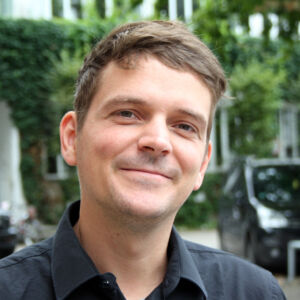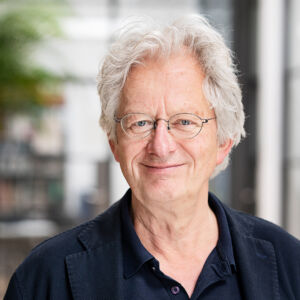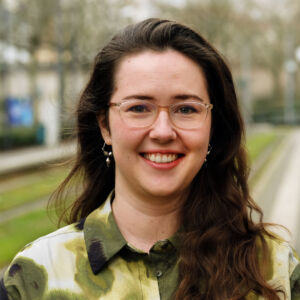

Transdisciplinarity
In the Research Unit “Transdisciplinarity” we aim to further develop methods and concepts of transdisciplinary research and to promote their establishment. We focus on conceptual and theoretical foundations, empirical applications, and science policy issues with the aim of ensuring the quality and effectiveness of transdisciplinary research and strengthening its societal relevance.
Our research focuses on three research strands:
Quality assurance in transdisciplinary cooperation
Classic evaluations and quality assurance procedures do not sufficiently take into account the diversity of transdisciplinary research. Our research focuses on the development of quality criteria for good transdisciplinary practice. We examine relevant criteria for researchers, funders, and societal actors worldwide, also taking into account power relations, justice, knowledge transfer, and the risks and potentials of digitalization and artificial intelligence.
Societal impacts of transdisciplinary research
Effectiveness is central to transdisciplinary research that shapes societal learning processes beyond the level of project research. We investigate how impulses for change emerging from transdisciplinary processes contribute to comprehensive transformations and how societal impacts can be captured. In order to explore and experience change, we also use our impact research to analyze how research and experimental spaces interact.
Transformation of the science system
To better establish transdisciplinary research within the science system, we investigate its impact on traditionally discipline-oriented scientific findings, researchers and institutions. We analyze how research institutions and funding organizations can integrate transdisciplinary research into their structures and incentive systems in order to promote excellent and societally relevant research. We discuss our findings in networks and with partners in order to advance the transformation of the science system.
Contact

Team
-
Prof. Dr.-Ing. Matthias Bergmann
![]()
Prof. Dr.-Ing. Matthias Bergmann
Associate Research Scientist
Go to Profile -
Dr. Alexandra Lux
![]()
Dr. Alexandra Lux
Member of the Executive Board, Head of the Knowledge Processes and Transformations Hub
Go to Profile
Projects
Publications
-
Whose knowledge counts for transformative change? – Operationalizing epistemic justice for transdisciplinary knowledge co-production Environmental Science and PolicyWhose knowledge counts for transformative change? – Operationalizing epistemic justice for transdisciplinary knowledge co-production
Stefanie Burkhart, Flurina Schneider
2026 -
Transdisziplinarität weiterdenken: ein Blick auf Chancen, Herausforderungen und Zukunftsperspektiven ISOE Blog Soziale Ökologie. Krise - Kritik - GestaltungTransdisziplinarität weiterdenken: ein Blick auf Chancen, Herausforderungen und Zukunftsperspektiven
Matthias Bergmann
2025 -
Reviews and syntheses: Current perspectives on biosphere research 2025: from poly-crisis to poly-solutions Reviews and syntheses: Current perspectives on biosphere research 2025: from poly-crisis to poly-solutions
Friedrich J. Bohn et al.
2025 -
Opportunities and Risks of Using AI Technologies in Transdisciplinary Research ISOE-Materialien Soziale ÖkologieOpportunities and Risks of Using AI Technologies in Transdisciplinary Research
Florian Keil, Melina Stein
2025 -
Transdisciplinary research with and for artificial intelligence Integration and Implementation InsightsTransdisciplinary research with and for artificial intelligence
Florian Keil, Melina Stein, Flurina Schneider
2025 -
State-of-the-Art: Assessing the Qualities of Transdisciplinary Research in German-Speaking Countries Working PaperState-of-the-Art: Assessing the Qualities of Transdisciplinary Research in German-Speaking Countries
Gabriela Michelini et al.
2025 -
State-of-the-Art: Bewertung der Qualitäten der Transdisziplinären Forschung im deutschsprachigen Raum ArbeitspapierState-of-the-Art: Bewertung der Qualitäten der Transdisziplinären Forschung im deutschsprachigen Raum
Gabriela Michelini et al.
2025 -
Wissenschaftsorganisationen als Impulsgeber einer Nachhaltigkeitstransformation GAIAWissenschaftsorganisationen als Impulsgeber einer Nachhaltigkeitstransformation
Benjamin Nölting et al.
2025 -
Social-ecological conflicts: An emancipatory conceptual approach by bringing other-than-humans into environmental conflict analysis Environment and Planning E: Nature and SpaceSocial-ecological conflicts: An emancipatory conceptual approach by bringing other-than-humans into environmental conflict analysis
Markus Rauchecker et al.
2025 -
Why context matters: understanding transdisciplinary research through the lens of nine context factors Innovation: The European Journal of Social Science ResearchWhy context matters: understanding transdisciplinary research through the lens of nine context factors
Farina L. Tolksdorf et al.
2025 -
Lessons from transdisciplinary urban research to promote sustainability transformation in real-world labs. Categories, pathways, and key principles for generating societal impact GAIALessons from transdisciplinary urban research to promote sustainability transformation in real-world labs. Categories, pathways, and key principles for generating societal impact
Michael Kreß-Ludwig et al.
2024 -
Wie Zukunftsstadtforschung wirkt: Produktiv. Nachhaltig. Lebendig. Grüne Finger für eine klimaresiliente Stadt Wie Zukunftsstadtforschung wirkt: Produktiv. Nachhaltig. Lebendig. Grüne Finger für eine klimaresiliente Stadt
Michael Kreß-Ludwig et al.
2024 -
Transdisciplinary Research Process Elgar Encyclopedias in the Social Sciences seriesTransdisciplinary Research Process
Alexandra Lux, Michael Kreß-Ludwig, Flurina Schneider
2024 -
Integration Elgar Encyclopedias in the Social Sciences seriesIntegration
Alexandra Lux, Oskar Marg, Flurina Schneider
2024 -
Gesellschaftliche Wirkungen in der transdisziplinären Stadtforschung erfassen und fördern: Ergebnisse einer Onlinebefragung transdisziplinärer Stadtforschungsprojekte Gesellschaftliche Wirkungen in der transdisziplinären Stadtforschung erfassen und fördern: Ergebnisse einer Onlinebefragung transdisziplinärer Stadtforschungsprojekte
Oskar Marg et al.
2024 -
Hohes Biodiversitätsbewusstsein in der Land- und Forstwirtschaft: wie eine Trendwende beim Biodiversitätsschutz gelingen kann Anliegen NaturHohes Biodiversitätsbewusstsein in der Land- und Forstwirtschaft: wie eine Trendwende beim Biodiversitätsschutz gelingen kann
Marion Mehring, Nadine Leichter
2024 -
Structuring Design & Evaluation in Transdisciplinarity for Transformation Transdisciplinarity for Transformation: Responding to Societ...Structuring Design & Evaluation in Transdisciplinarity for Transformation
Barbara J. Regeer et al.
2024 -
Gesundheitsförderung im Reallabor? Prävention und GesundheitsförderungGesundheitsförderung im Reallabor?
Karim Abu-Omar et al.
2023 -
Dilemmata der Nachhaltigkeit - Herausforderungen für die transdisziplinäre Forschungspraxis Dilemmata der NachhaltigkeitDilemmata der Nachhaltigkeit - Herausforderungen für die transdisziplinäre Forschungspraxis
Matthias Bergmann, Thomas Jahn
2023 -
Dilemmata der Nachhaltigkeit Dilemmata der Nachhaltigkeit
Anna Henkel et al.
2023 -
Dilemmas of Sustainability. On Relevance and Critical Reflection in Sustainability Research. A Guide Dilemmas of Sustainability. On Relevance and Critical Reflection in Sustainability Research. A Guide
Anna Henkel et al.
2023 -
How do we want to live? Collaborative curation of a special exhibition on sustainable futures at the Senckenberg Natural History Museum Frankfurt A New Role for Museum Educators. Purpose, Approach, and Mind...How do we want to live? Collaborative curation of a special exhibition on sustainable futures at the Senckenberg Natural History Museum Frankfurt
Christina Hoefling et al.
2023 -
Towards a theory of change to institutionalise integration experts and expertise Blog Integration and Implementation InsightsTowards a theory of change to institutionalise integration experts and expertise
Sabine Hoffmann et al.
2023 -
Recommendations for effective insect conservation in nature protected areas based on a transdisciplinary project in Germany Environmental Sciences EuropeRecommendations for effective insect conservation in nature protected areas based on a transdisciplinary project in Germany
Sebastian Köthe et al.
2023 -
Improving insect conservation management through insect monitoring and stakeholder involvement Biodiversity and ConservationImproving insect conservation management through insect monitoring and stakeholder involvement
Sebastian Köthe et al.
2023 -
Vorgehensweisen und Rahmenbedingungen zur Erzeugung gesellschaftlicher Wirkungen in transdisziplinären Forschungsprojekten. Eine vertiefende Fallstudie anhand des Projekts ClimSmartLok Vorgehensweisen und Rahmenbedingungen zur Erzeugung gesellschaftlicher Wirkungen in transdisziplinären Forschungsprojekten. Eine vertiefende Fallstudie anhand des Projekts ClimSmartLok
Oskar Marg et al.
2023 -
Effects of transdisciplinary research on scientific knowledge and reflexivity Research EvaluationEffects of transdisciplinary research on scientific knowledge and reflexivity
Oskar Marg, Lena Theiler
2023 -
Wie Zukunftsstadtforschung wirkt: MobilBericht - Verkehrsplanung am Menschen ausrichten. Sozial gerecht und ökologisch verträglich Wie Zukunftsstadtforschung wirkt: MobilBericht - Verkehrsplanung am Menschen ausrichten. Sozial gerecht und ökologisch verträglich
Oskar Marg et al.
2023 -
Zielvorstellung Biodiversität - Biodiversitätsbewusstsein in der Land- und Forstwirtschaft. Konzeptentwicklung und Ergebnisse einer standardisierten Befragung in Deutschland ISOE-Materialien Soziale ÖkologieZielvorstellung Biodiversität - Biodiversitätsbewusstsein in der Land- und Forstwirtschaft. Konzeptentwicklung und Ergebnisse einer standardisierten Befragung in Deutschland
Marion Mehring et al.
2023 -
Fostering transdisciplinary research for sustainability in the Global South: Pathways to impact for funding programmes Humanities and Social Sciences CommunicationsFostering transdisciplinary research for sustainability in the Global South: Pathways to impact for funding programmes
Flurina Schneider et al.
2023 -
The Transdisciplinary Research Mode. How to Promote Societal and Scientific Effects Discussion PaperThe Transdisciplinary Research Mode. How to Promote Societal and Scientific Effects
Matthias Bergmann
2022 -
ESD in the Museum: The Project BioKompass. A Practical View from the Senckenberg Natural History Museum Frankfurt Transdisciplinary Impulses towards Socio-Ecological Transfor...ESD in the Museum: The Project BioKompass. A Practical View from the Senckenberg Natural History Museum Frankfurt
Leon Fuchs, Christina Hoefling, Lena Theiler
2022 -
Painting the full picture: An integrative perspective on context, formats and impact in transdisciplinary research Science for Sustainability: A blog by social-ecological rese...Painting the full picture: An integrative perspective on context, formats and impact in transdisciplinary research
David P. M. Lam et al.
2022 -
Integrating context, formats and effects in transdisciplinary research Integration and Implementation Insights: A community blog pr...Integrating context, formats and effects in transdisciplinary research
David P. M. Lam et al.
2022 -
Transdisciplinary research: how are context dependencies, innovative formats and methods, societal effects, and scientific effects connected? ISOE Blog Soziale Ökologie. Krise - Kritik - GestaltungTransdisciplinary research: how are context dependencies, innovative formats and methods, societal effects, and scientific effects connected?
David P. M. Lam, Josefa Kny
2022 -
Reallabore für urbane Transformation. Methoden, Akteure und Orte experimenteller und ko-produktiver Stadtentwicklung am Beispiel der BMBF-Zukunftsstadtforschung Reallabore für urbane Transformation. Methoden, Akteure und Orte experimenteller und ko-produktiver Stadtentwicklung am Beispiel der BMBF-Zukunftsstadtforschung
Jens Libbe, SynVer*Z - Synthese- und Vernetzungsprojekt Zukunftsstadt
2022 -
Linking Local Projects With Global Processes: Learning From Transdisciplinary Collaborations in African Cities Frontiers in Sustainable CitiesLinking Local Projects With Global Processes: Learning From Transdisciplinary Collaborations in African Cities
Zarina Patel, Flurina Schneider, Katsia Paulavets
2022 -
Eleven success factors for transdisciplinary real-world labs. Integration and Implementation Insights Integration and Implementation InsightsEleven success factors for transdisciplinary real-world labs. Integration and Implementation Insights
Niko Schäpke et al.
2022 -
Transdisciplinary sustainability research in real-world labs: success factors and methods for change Sustainability ScienceTransdisciplinary sustainability research in real-world labs: success factors and methods for change
Matthias Bergmann et al.
2021 -
Too big not to fail? Über Design und Ausführung von inter- und transdisziplinärer Forschung am Beispiel des Groβprojekts ENavi GAIAToo big not to fail? Über Design und Ausführung von inter- und transdisziplinärer Forschung am Beispiel des Groβprojekts ENavi
Marion Dreyer et al.
2021 -
Diskurse über Transformation anregen - die Nutzung von Zukunftsszenarien für partizipative Dialogformate in Museen und Schulen am Beispiel Bioökonomie Diskurse über Transformation anregen - die Nutzung von Zukunftsszenarien für partizipative Dialogformate in Museen und Schulen am Beispiel Bioökonomie
Christina Hoefling et al.
2021 -
Transdisciplinary research: towards an integrative perspective GAIATransdisciplinary research: towards an integrative perspective
David P. M. Lam et al.
2021 -
Diversity of Insects in Nature protected Areas (DINA): an interdisciplinary German research project Biodiversity and ConservationDiversity of Insects in Nature protected Areas (DINA): an interdisciplinary German research project
Gerlind U. C. Lehmann et al.
2021 -
Wie leben wir morgen. Forschungsimpulse für eine nachhaltige Stadt Wie leben wir morgen. Forschungsimpulse für eine nachhaltige Stadt
Jens Libbe et al.
2021 -
DINA - Diversität von Insekten in Naturschutz-Arealen. Umfangreiches Forschungsprojekt zum Insektenschwund Newsletter DINADINA - Diversität von Insekten in Naturschutz-Arealen. Umfangreiches Forschungsprojekt zum Insektenschwund
Alexandra Lux et al.
2021 -
Prozessbegleitende Evaluation von Kommunikations- und Partizipationsformaten im Themenfeld Bioökonomie. Evaluationskonzept BioKompass ISOE-Materialien Soziale ÖkologieProzessbegleitende Evaluation von Kommunikations- und Partizipationsformaten im Themenfeld Bioökonomie. Evaluationskonzept BioKompass
Alexandra Lux, Lena Theiler
2021 -
Vorgehensweisen und Rahmenbedingungen zur Erzeugung gesellschaftlicher Wirkungen in transdisziplinären Forschungsprojekten. Eine vertiefende Fallstudie anhand des Projekts MobilBericht Vorgehensweisen und Rahmenbedingungen zur Erzeugung gesellschaftlicher Wirkungen in transdisziplinären Forschungsprojekten. Eine vertiefende Fallstudie anhand des Projekts MobilBericht
Oskar Marg et al.
2021 -
Systematizing societal effects of transdisciplinary research Research EvaluationSystematizing societal effects of transdisciplinary research
Martina Schäfer, Matthias Bergmann, Lena Theiler
2021 -
Insektenschutz in agrarischen Kulturlandschaften Deutschlands. Eine Diskursfeldanalyse ISOE-Materialien Soziale ÖkologieInsektenschutz in agrarischen Kulturlandschaften Deutschlands. Eine Diskursfeldanalyse
Thomas Fickel, Alexandra Lux, Florian Dirk Schneider
2020 -
Biodiversitätskonflikte. Eine sozial-ökologische Perspektive W & F Wissenschaft und FriedenBiodiversitätskonflikte. Eine sozial-ökologische Perspektive
Thomas Fickel, Robert Lütkemeier, Diana Hummel
2020 -
Anthropocene Biodiversity Challenges. Über die Notwendigkeit einer sozial-ökologischen Biodiversitätsforschung Senckenberg Natur, Forschung, MuseumAnthropocene Biodiversity Challenges. Über die Notwendigkeit einer sozial-ökologischen Biodiversitätsforschung
Marion Mehring, Alexandra Lux, Thomas Jahn
2020 -
Transdisziplinäre Forschung wirkungsvoll gestalten. Qualitätsstandards für erfolgreiche Forschungsansätze Ökologisches WirtschaftenTransdisziplinäre Forschung wirkungsvoll gestalten. Qualitätsstandards für erfolgreiche Forschungsansätze
Martina Schäfer, Alexandra Lux
2020 -
The Kopernikus Project ENavi: linking science, business, and civil society The Role of Public Participation in Energy TransitionsThe Kopernikus Project ENavi: linking science, business, and civil society
Piet Sellke et al.
2020 -
EVOLvINC: EValuating knOwLedge INtegration Capacity in multistakeholder governance Ecology and SocietyEVOLvINC: EValuating knOwLedge INtegration Capacity in multistakeholder governance
Martin Hitziger et al.
2019 -
Societal effects of transdisciplinary sustainability research - How can they be strengthened during the research process? Environmental Science and PolicySocietal effects of transdisciplinary sustainability research - How can they be strengthened during the research process?
Alexandra Lux et al.
2019 -
Wirkungen transdisziplinärer Stadtforschung in den Projekten der Förderlinien 'Leitinitiative Zukunftsstadt' und 'Nachhaltige Transformation urbaner Räume'. Wirkungskategorien, Projektprofile und Handreichung zur Selbstreflexion Wirkungen transdisziplinärer Stadtforschung in den Projekten der Förderlinien 'Leitinitiative Zukunftsstadt' und 'Nachhaltige Transformation urbaner Räume'. Wirkungskategorien, Projektprofile und Handreichung zur Selbstreflexion
Oskar Marg, Michael Kreß-Ludwig, Alexandra Lux
2019 -
Gesellschaftliche Partizipationsprozesse, partizipative Forschungsmethoden und Methoden der Wissensintegration Gesellschaftliche Partizipationsprozesse, partizipative Forschungsmethoden und Methoden der Wissensintegration
Matthias Bergmann et al.
2018 -
Documentation of the ISOE Summer School 2018 "Brilliant Minds for Social-Ecological Transformations" Documentation of the ISOE Summer School 2018 "Brilliant Minds for Social-Ecological Transformations"
Heide Kerber, Lukas Drees
2018 -
'Wirkungen' verstehen und feststellen 'Wirkungen' verstehen und feststellen
Matthias Bergmann, Martina Schäfer, Thomas Jahn
2017 -
Co-producing active lifestyles as whole-system-approach: theory, intervention and knowledge-to-action implications Health Promotion InternationalCo-producing active lifestyles as whole-system-approach: theory, intervention and knowledge-to-action implications
Alfred Rütten et al.
2017 -
Entwicklungsportfolio Energiewende und nachhaltiger Konsum. Erstellt im Rahmen der Wissenschaftlichen Koordination der BMBF-Fördermaβnahme "Umwelt- und gesellschaftsverträgliche Transformation des Energiesystems" Entwicklungsportfolio Energiewende und nachhaltiger Konsum. Erstellt im Rahmen der Wissenschaftlichen Koordination der BMBF-Fördermaβnahme "Umwelt- und gesellschaftsverträgliche Transformation des Energiesystems"
Immanuel Stieß, Sarah Kresse
2017 -
Wirkungsvolle transdisziplinäre Forschung. TransImpact untersucht transdisziplinäre Projekte GAIAWirkungsvolle transdisziplinäre Forschung. TransImpact untersucht transdisziplinäre Projekte
Matthias Bergmann et al.
2016 -
Forschung für Nachhaltige Entwicklungen. Fördermaβnahme Transformation des Energiesystems GAIAForschung für Nachhaltige Entwicklungen. Fördermaβnahme Transformation des Energiesystems
Rainer Grießhammer, Matthias Bergmann, Frank Betker
2014 -
Politikrelevante Nachhaltigkeitsforschung. Anforderungsprofil für Forschungsförderer, Forschende und Praxispartner aus der Politik zur Verbesserung und Sicherung von Forschungsqualität - Ein Wegweiser Politikrelevante Nachhaltigkeitsforschung. Anforderungsprofil für Forschungsförderer, Forschende und Praxispartner aus der Politik zur Verbesserung und Sicherung von Forschungsqualität - Ein Wegweiser
Thomas Jahn et al.
2012
















